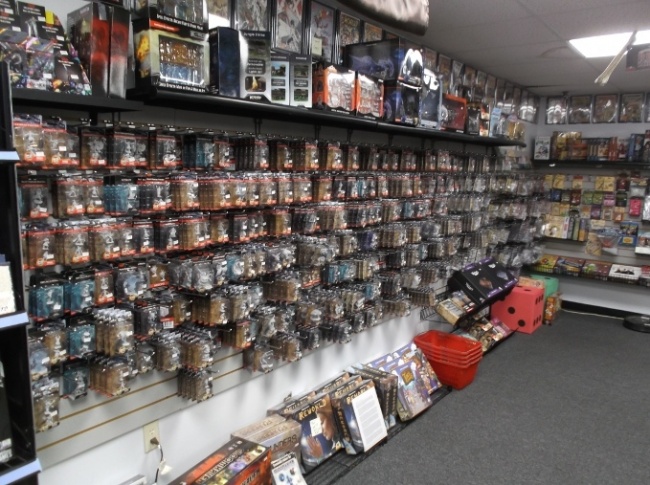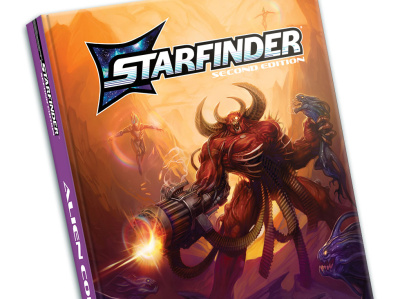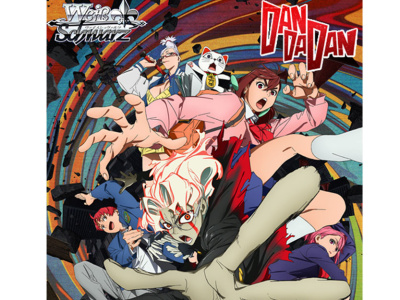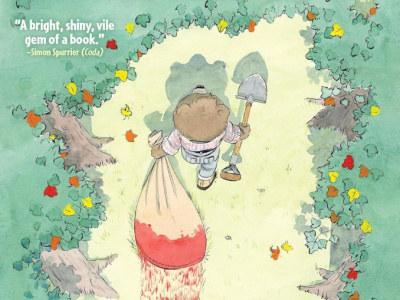Rolling for Initiative is a weekly column by Scott Thorne, PhD, owner of Castle Perilous Games & Books in Carbondale, Illinois and instructor in marketing at Southeast Missouri State University. This week, Thorne applies concepts from behavioral economics to the games business.
I always like taking a dive into behavioral economics and seeing how concepts from the field can apply to the game industry. Described in colloquial terms, here are some concepts for the field and how they apply.
Hot Hand Fallacy. This concept comes from basketball and is the idea of perceiving trends where none actually exist, (although recent research does give credence to the "hot hand" actually existing, at least in areas where the person has some level of control over the outcome). The hot hand fallacy can been seen most readily in the opening of packs of TCGs such as Magic and Pokemon. A customer opens a pack of Pokemon, pulls a really good card, opens a second pack of Pokemon and pulls another really good card. Since a pattern has been established, even a small one, the player keeps buying packs of cards until a run of pulling not-really-good cards extinguishes the streak.
One can also see evidence of the "hot hand" in dice-based games, wherein one player starts rolling high or low for an extended period of time. There is no actual "streak" taking place, just the law of probabilities aligning in the player’s favor for a period of time. This is akin to the gambler’s fallacy, wherein a gambler engaging in a game with a randomized outcome, such as craps or slots, believes an outcome is more or less likely given previous outcomes, i.e., "past performance is no guarantee of future outcomes." Slot machines prove a perfect example of this. People play slot machines, not getting any return from their "investment," expecting that a series of losses means that the machine will pay out significant winnings "any time now" when, in actuality, each spin exists solely on its own, having no effect on future wins. Similarly, in Catan, a player may roll a 7, allowing them to move the robber. A second 7 may be rolled, and even a third, but each roll exists independently of the other and has no effect on subsequent rolls.
Recency Bias. This is the tendency to overemphasize the most recent events over those that happened in the distant or even near past, which may lead to decisions made in haste without considering the decision in terms of overall behavior. Case in point, no matter how well you may have treated a customer in the past, if you or your staff are rude, or they perceive you as unfair or unappreciative of their business, they will remember your most recent behavior and it will supplant all the previous good will you worked so hard to build: "You are only as good as your last job." That works for both customers with stores and stores with distributors and publishers.
Finally for this batch, there is the Choice Paradox, which I have talked about before but is always worth revisiting (see "Rolling for Initiative – The Choice Paradox"). The Choice Paradox says that while people say they want lots of options from which to choose, having too many choices causes them to vacillate between them, to the point where it proves easier to just walk away without deciding. I am reminded of this paradox every time I look at our or another store’s WizKids Dungeons & Dragons and Pathfinder miniatures selection or the Games Workshop racks. The offerings may be fine for customers who know exactly what they want but a recent entrant to the hobby will look at the selection and throw their hands up. That is when the store staff needs to step in and help them decide.
Email castleperilousgames@gmail.com and let me know what you think about these behaviors, and I will take a look at some more aspects of behavioral economics in a future column.
The opinions expressed in this column are solely those of the writer, and do not necessarily reflect the views of the editorial staff of ICv2.com.
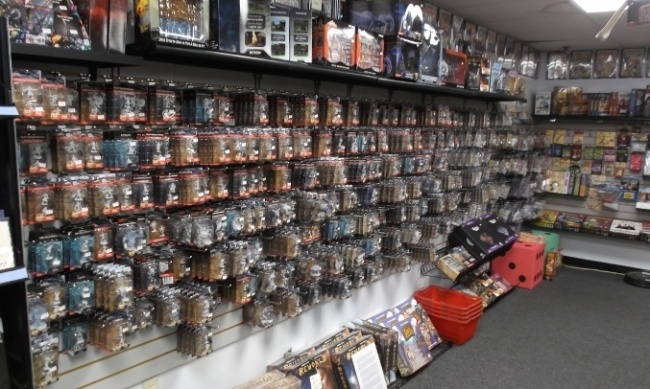
Column by Scott Thorne
Posted by Scott Thorne on September 8, 2020 @ 3:09 am CT
MORE GAMES
New 2E Rulebook
August 20, 2025
Paizo, Inc. revealed Alien Core 2, a new rulebook for Starfinder RPG 2E.
New Booster Set
August 20, 2025
Bushiroad unveiled DanDaDan, a booster set for Weiss Schwarz.
MORE COLUMNS
Column by Rob Salkowitz
August 19, 2025
For Horror Week, columnist Rob Salkowitz asks whether the horror boom can help get us through a moment full of woe and dread.
Column by Scott Thorne
August 18, 2025
This week, columnist Scott Thorne discusses some of the most frightfully fun games of the year for Horror Week.




